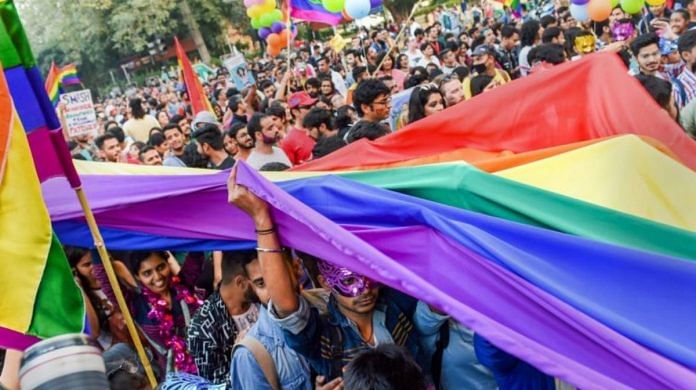New Delhi: India’s medical regulatory body National Medical Commission (NMC) said Friday that it had declared conversion therapy – an illegal practice that queer people are subjected to in order to “cure” them — as an act of professional misconduct.
At a hearing Friday, NMC told the Madras High Court that it had complied with the court’s 8 July order and banned the practice under the Indian Medical Council (Professional Conduct, Etiquette and Ethics) Regulations, 2002.
The NMC told the court it had issued a notification to state medical councils on 25 August.
The development came after a series of orders from the Madras High Court to improve the lives of the LGBTQIA+ community.
In its order dated 8 July, a bench headed by Justice N. Anand Venkatesh ordered the NMC to list conversion therapy as professional misconduct to ensure that doctors performing such procedures are prosecuted.
The order was in line with the high court’s previous directions asking the commission to guarantee that the state medical councils will declare conversion therapy as misconduct to ensure uniformity.
Experts have welcomed the measure saying this will help eliminate malpractice.
Also Read: Judge lays down rules for LGBTQ protection after counselling to get ‘woke’ on same-sex couples
What the court said
Conversion therapy is the attempt to change an individual’s sexual orientation, gender identity, or gender expression. Sometimes referred to as reparative therapy, the practice may include talking therapies and prayer as well as extreme practices such as exorcism, physical violence, and food deprivation. These methods are used to try to stop or suppress a person’s sexual or gender identity in order to “cure” them by changing their sexual orientation or gender identity.
On Friday, the Madras High Court gave the Tamil Nadu government 12 weeks to notify the Transgender Persons (Protection of Rights) Rules after the government reported to the court that the Act is in its final stages.
The court admonished the state government for its delay in implementing the policy.
“This process has been ongoing for over a year, and it is unclear why six months are being sought to implement the Transgender Policy and the rules outlined in the 2019 Act,” the court said.
The high court also turned down the state government’s request for six months to finalise the policy, saying that it showed that the issue was not being given due attention.
Additional Advocate General (AAG) S. Silambanan told the court that the glossary with terms used to address the LGBTQIA+ community was published in the Official Gazette and that the terms will be used to address the queer community.
(Edited by Uttara Ramaswamy)
Also Read: Where are India’s queer parents? Having a family is not even an option for many Indians



